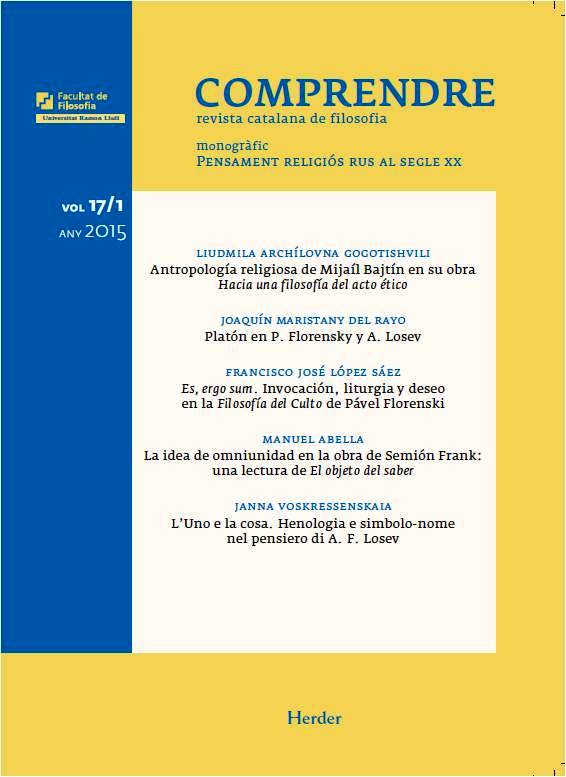Antropología religiosa de Mijaíl Bajtín en su obra "Hacia una filosofía del acto ético"
Article Sidebar

Main Article Content
Según la hipótesis planteada en Hacia una filosofía del acto ético de Mijaíl Bajtín, se puede establecer la existencia de una trama durante la construcción de su argumento que consiste en la creación intencionada de un gradual aumento de la tensión entre su objetivo (construir una especie de "sistema de filosofía moral") y el método principal para conseguirlo, es decir, la multiplicación de los argumentos que conforman el "peso específico" y que inciden en la importancia total del yo singular (una multiplicación retóricamente demostrativa, realizada de un modo similar a la crítica nietzscheana del resentimiento, si no de la moralidad en su totalidad).
According to the hypothesis which is raised in Towards a Philosophy of the Act by Mijail Bajtín, the existence of a plot during the building of its subject can be established. It consists on the intentional creation of a gradual growing of the polarity between its aim (to build a kind of “system of moral philosophy”) and the main method to obtain it, that is, the multiplication of the subjects of the arguments which feature the “total weight”and which have an impact on the final importance of the singular I (a multiplication rhetorically demonstrative, which is acted in a similar way to the nietzschean criticism on resentment, if not on the morality globally). rent commentaries will be classified in relation to the three subjects: a) the method or methods (logic and dialectics), b) the question concerning pleasures and its importance in the constitution of the good life (ethics), and finally, c) the question of first principles (metaphysics). The paper bases a big part of its analysis on the volume dedicated to the eighth Platonicum Symposium organized by the International Plato Society (IPS) and devoted exclusively to expose contemporary studies on Plato’s Philebus.
Article Details
Drets d'autor
La revista Comprendre es publica en accés obert sota la llicència Creative Commons Reconeixement-NoComercial-CompartirIgual (by-nc-sa): No es permet un ús comercial de l’obra original ni de les possibles obres derivades, la distribució de les quals s’ha de fer amb una llicència igual a la que regula l’obra original.